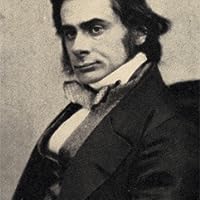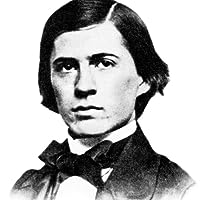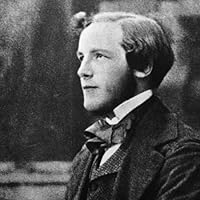Rene Descartes Quotes
Quotes tagged as "rene-descartes"
Showing 1-9 of 9

“There are some men who are counted great because they represent the actuality of their own age, and mirror it as it is. Such an one was Voltaire, of whom it was epigrammatically said: 'he expressed everybody's thoughts better than anyone.' But there are other men who attain greatness because they embody the potentiality of their own day and magically reflect the future. They express the thoughts which will be everybody's two or three centuries after them. Such as one was Descartes.”
―
―

“...Although the term Existentialism was invented in the 20th century by the French philosopher Gabriel Marcel, the roots of this thought go back much further in time, so much so, that this subject was mentioned even in the Old Testament. If we take, for example, the Book of Ecclesiastes, especially chapter 5, verses 15-16, we will find a strong existential sentiment there which declares, 'This too is a grievous evil: As everyone comes, so they depart, and what do they gain, since they toil for the wind?' The aforementioned book was so controversial that in the distant past there were whole disputes over whether it should be included in the Bible. But if nothing else, this book proves that Existential Thought has always had its place in the centre of human life. However, if we consider recent Existentialism, we can see it was the French philosopher Jean-Paul Sartre who launched this movement, particularly with his book Being and Nothingness, in 1943. Nevertheless, Sartre's thought was not a new one in philosophy. In fact, it goes back three hundred years and was first uttered by the French philosopher René Descartes in his 1637 Discours de la Méthode, where he asserts, 'I think, therefore I am' . It was on this Cartesian model of the isolated ego-self that Sartre built his existential consciousness, because for him, Man was brought into this world for no apparent reason and so it cannot be expected that he understand such a piece of absurdity rationally.''
'' Sir, what can you tell us about what Sartre thought regarding the unconscious mind in this respect, please?'' a charming female student sitting in the front row asked, listening keenly to every word he had to say.
''Yes, good question. Going back to Sartre's Being and Nothingness it can be seen that this philosopher shares many ideological concepts with the Neo-Freudian psychoanalysts but at the same time, Sartre was diametrically opposed to one of the fundamental foundations of psychology, which is the human unconscious. This is precisely because if Sartre were to accept the unconscious, the same subject would end up dissolving his entire thesis which revolved around what he understood as being the liberty of Man. This stems from the fact that according to Sartre, if a person accepts the unconscious mind he is also admitting that he can never be free in his choices since these choices are already pre-established inside of him. Therefore, what can clearly be seen in this argument is the fact that apparently, Sartre had no idea about how physics, especially Quantum Mechanics works, even though it was widely known in his time as seen in such works as Heisenberg's The Uncertainty Principle, where science confirmed that first of all, everything is interconnected - the direct opposite of Sartrean existential isolation - and second, that at the subatomic level, everything is undetermined and so there is nothing that is pre-established; all scientific facts that in themselves disprove the Existential Ontology of Sartre and Existentialism itself...”
― Paceville and Metanoia
'' Sir, what can you tell us about what Sartre thought regarding the unconscious mind in this respect, please?'' a charming female student sitting in the front row asked, listening keenly to every word he had to say.
''Yes, good question. Going back to Sartre's Being and Nothingness it can be seen that this philosopher shares many ideological concepts with the Neo-Freudian psychoanalysts but at the same time, Sartre was diametrically opposed to one of the fundamental foundations of psychology, which is the human unconscious. This is precisely because if Sartre were to accept the unconscious, the same subject would end up dissolving his entire thesis which revolved around what he understood as being the liberty of Man. This stems from the fact that according to Sartre, if a person accepts the unconscious mind he is also admitting that he can never be free in his choices since these choices are already pre-established inside of him. Therefore, what can clearly be seen in this argument is the fact that apparently, Sartre had no idea about how physics, especially Quantum Mechanics works, even though it was widely known in his time as seen in such works as Heisenberg's The Uncertainty Principle, where science confirmed that first of all, everything is interconnected - the direct opposite of Sartrean existential isolation - and second, that at the subatomic level, everything is undetermined and so there is nothing that is pre-established; all scientific facts that in themselves disprove the Existential Ontology of Sartre and Existentialism itself...”
― Paceville and Metanoia

“The analytical geometry of Descartes and the calculus of Newton and Leibniz have expanded into the marvelous mathematical method—more daring than anything that the history of philosophy records—of Lobachevsky and Riemann, Gauss and Sylvester. Indeed, mathematics, the indispensable tool of the sciences, defying the senses to follow its splendid flights, is demonstrating today, as it never has been demonstrated before, the supremacy of the pure reason.”
―
―

“With the growth of civilisation in Europe, and with the revival of letters and of science in the fourteenth and fifteenth centuries, the ethical and intellectual criticism of theology once more recommenced, and arrived at a temporary resting-place in the confessions of the various reformed Protestant sects in the sixteenth century; almost all of which, as soon as they were strong enough, began to persecute those who carried criticism beyond their own limit. But the movement was not arrested by these ecclesiastical barriers, as their constructors fondly imagined it would be; it was continued, tacitly or openly, by Galileo, by Hobbes, by Descartes, and especially by Spinoza, in the seventeenth century; by the English Freethinkers, by Rousseau, by the French Encyclopaedists, and by the German Rationalists, among whom Lessing stands out a head and shoulders taller than the rest, throughout the eighteenth century; by the historians, the philologers, the Biblical critics, the geologists, and the biologists in the nineteenth century, until it is obvious to all who can see that the moral sense and the really scientific method of seeking for truth are once more predominating over false science. Once more ethics and theology are parting company.”
― The Evolution Of Theology: An Anthropological Study
― The Evolution Of Theology: An Anthropological Study

“I think, therefore I am?
No, I simply am.
I am. I am. I am.
I will still be if I didn't think. In fact, it is only then that I would step into a different dimension of consciousness.
Yes, I will still be if I didn't think. I will still be if I stopped breathing. I will still be because you still are. My words are written and you are receiving them. We are dancing. We are making love.
And when you stop reading them, they will still be because nothing ever truly ceases to exist. There is not a thing that is not. Every thought, energy, and vibration is recycled.
I am and I will continue to be because I manifest as the universe, therefore I will continue to manifest as the universe.”
―
No, I simply am.
I am. I am. I am.
I will still be if I didn't think. In fact, it is only then that I would step into a different dimension of consciousness.
Yes, I will still be if I didn't think. I will still be if I stopped breathing. I will still be because you still are. My words are written and you are receiving them. We are dancing. We are making love.
And when you stop reading them, they will still be because nothing ever truly ceases to exist. There is not a thing that is not. Every thought, energy, and vibration is recycled.
I am and I will continue to be because I manifest as the universe, therefore I will continue to manifest as the universe.”
―

“Kepler’s discovery would not have been possible without the doctrine of conics. Now contemporaries of Kepler—such penetrating minds as Descartes and Pascal—were abandoning the study of geometry ... because they said it was so UTTERLY USELESS. There was the future of the human race almost trembling in the balance; for had not the geometry of conic sections already been worked out in large measure, and had their opinion that only sciences apparently useful ought to be pursued, the nineteenth century would have had none of those characters which distinguish it from the ancien régime.”
― Collected Papers of Charles Sanders Peirce, Volumes V and VI, Pragmatism and Pragmaticism and Scientific Metaphysics
― Collected Papers of Charles Sanders Peirce, Volumes V and VI, Pragmatism and Pragmaticism and Scientific Metaphysics

“The French Philosopher of the 16th and the 17th Century, Rene Descartes, had said: "If you would be a real seeker after truth, it is necessary at least once in your life you doubt, as far as possible, all things." This is the best way for the public to approach whatever it perceives. The only way to resist to deceit. Education and knowledge can help people be more skeptics, but everyone could start by doubting everything and not believing anything. Even the things that seem too obvious or too reliable. I've noticed a tendency to this direction, but I don't know how broad it is. It has to broaden; for humanity's sake. For truth's sake.”
―
―

“His ideas may get corrected and be forgotten with time, but the man must not be.”
― Random Cosmos
― Random Cosmos
All Quotes
|
My Quotes
|
Add A Quote
Browse By Tag
- Love Quotes 97.5k
- Life Quotes 76k
- Inspirational Quotes 73k
- Humor Quotes 43.5k
- Philosophy Quotes 29.5k
- Inspirational Quotes Quotes 27k
- God Quotes 26k
- Truth Quotes 23.5k
- Wisdom Quotes 23.5k
- Romance Quotes 23k
- Poetry Quotes 22k
- Death Quotes 20k
- Happiness Quotes 18.5k
- Life Lessons Quotes 18.5k
- Hope Quotes 18k
- Faith Quotes 18k
- Quotes Quotes 16.5k
- Inspiration Quotes 16.5k
- Spirituality Quotes 15k
- Religion Quotes 15k
- Motivational Quotes 15k
- Writing Quotes 15k
- Relationships Quotes 14.5k
- Life Quotes Quotes 14k
- Love Quotes Quotes 14k
- Success Quotes 13.5k
- Time Quotes 12.5k
- Motivation Quotes 12k
- Science Quotes 11.5k
- Motivational Quotes Quotes 11.5k


